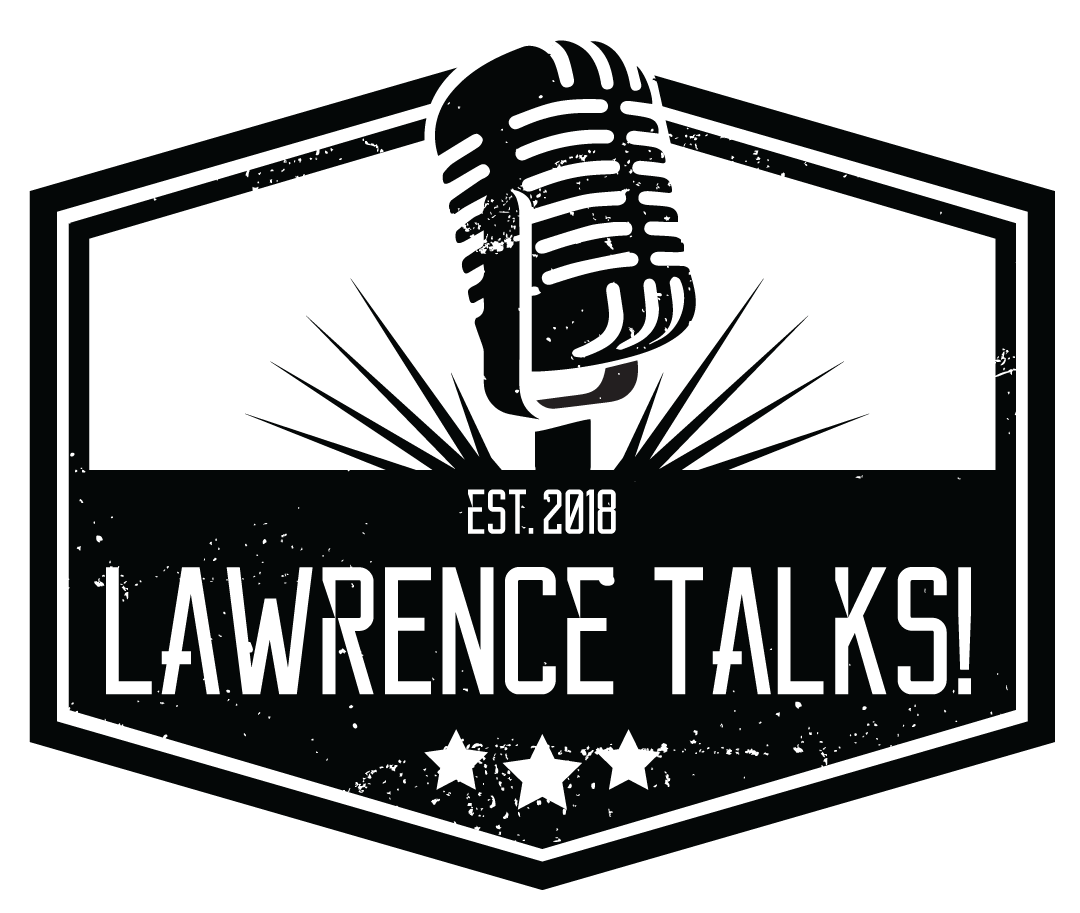A Letter to Our Community
We stand in solidarity with our Black community members here and around the nation. And all those who fall within the most marginalized. We have and continue to do our best to demonstrate this solidarity through exploring ideas and perspectives that have gone untold or under-appreciated.
Since its inception, Lawrence Talks has been concerned with discussing topics pertaining to justice, ethics, and humanist topics with our community. Our general position regarding justice is that, at the very least, it is a communal and social enterprise. In other words, what justice means is that decisions about how our communities and its institutions are shaped must be decided by way of collective decision-making. The more voices, perspectives, and experiences we allow to be voiced the more likely it is that we improve our communities. Now, we understand that this task is not always easy, nor that we will always get it right. But, we must try. We must turn the sentiments of solidarity, outrage, anger, and sadness into tangible actions. Actions that will prevail and sustain overtime. We must not let what we feel now turn into apathy, cynicism, and hopelessness. Maintaining a free and equitable community is not easy - it is hard. But, we should not let this discourage us from trying.
As a theologian, Martin Luther King Jr. provided a contemporary take on the legal and moral tradition of natural law. While his theology can be witnessed in his leadership during the Civil Rights Movement, you can also read it in his Letter from a Birmingham Jail. He first promotes the idea that doing the right thing should not be a matter of where one is when an injustice occurs, he writes: “Injustice anywhere is a threat to justice everywhere.” An injustice in Minneapolis, or Baltimore, or Ferguson, should be taken as an injustice in Lawrence, KS. He also notes the following of unjust laws: “An unjust law is a code that a numerical or power majority group compels a minority group to obey but does not make binding on itself.” This is to note that laws, to be considered just, must be applied and obligatory to all equally. Further, it notes that the laws themselves can be unjust, and that any insistence that the laws be followed, must always be met with the following question: Is what you are compelling me to do, the right thing to do? Finally, it recognizes that legal systems can be morally imperfect. Thus, it is the job of both citizens and community leaders through protest, civil disobedience, and other forms of political action to improve these systems.
As a community, we have an obligation to make our justified reactions towards injustice more concrete through particular policy recommendations and how we conduct ourselves outside of politics. In the moment of injustice like police brutality against our marginalized Black and Brown fellow community members happens; we must do our best to determine and locate those actions and policies that ensure that they never happen again. Justice is not just about what the law is at any given moment. It is more than what is written down. It is in how we treat each other, how we live with each other, and how we act together. It is holistic.
Going forward, Lawrence Talks will continue its work discussing justice, morality, and philosophy with fellow community members. We are here to serve as a platform for those least heard in our community. In the coming weeks, we will hold conversations with community members seeking office in our districts, in law enforcement, and other justice-involved institutions and community leaders. We will discuss with them their views of justice, what it looks like, how they plan to bring it about, and what others can do to help. We are currently working on expanding our discussions to include different forms of storytelling that recognizes the following fact: good ideas or ideas worth exploring can be found just about anywhere and from anyone.
These discussions are not just worthwhile for pure intellectual fun - although they can be that too. Having a conversation about the values and principles we want most represented in our communities has always been important, but it is needed very much right now.
To that end, we invite members of our community to provide us with your views on justice. Begin a conversation here or with each other. Just make sure we have it. After all, a just community is a community where many voices are provided opportunities to speak and be heard.
